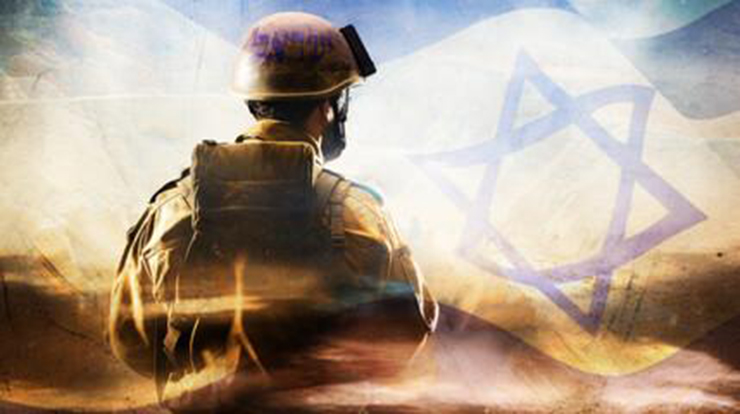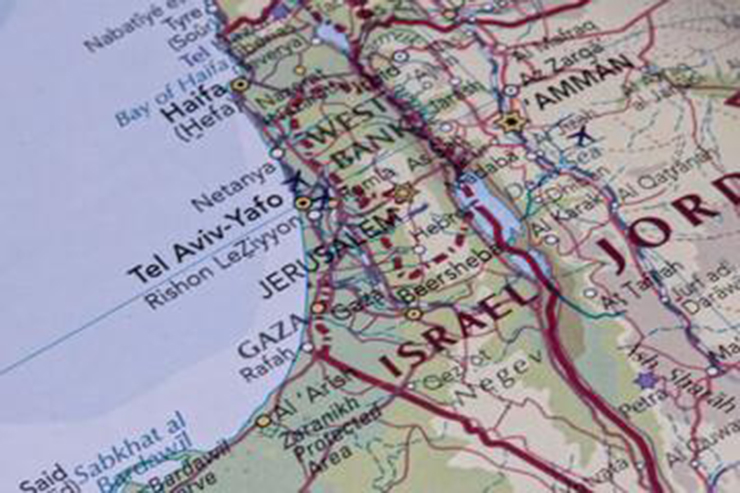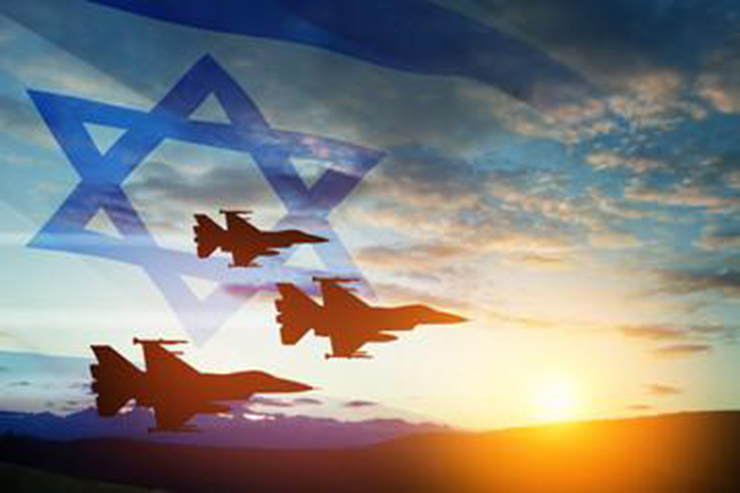
Serious Concerns: When the Israeli drones struck the World Central Kitchen (WCK) food cars in Deir al-Balah in central Gaza, the destruction proved an extreme low for Israel’s campaign. It wasn’t the first or isolated incident of aid workers being targeted or the people lining up for food strewn with bullets. It is widely reported that on March 4 and March 14 in multiple instances Israeli military fired at the people waiting for aid delivery. In a March 15 report filed by Al Jazeera, the casualty figures were pegged at 56 while more than 300 were reportedly injured. The details of the incident were disturbing and what was appalling was the rather unapologetic manner of acceptance by the Israeli Defence Forces (IDF). Naturally, it didn’t go down well anywhere in the world to see civilians die like this at the hands of a professional army.
The Israeli operation has already resulted in 33,175 Palestinian casualties with more than 8,000 missing and presumed dead. Though a war brings competing views and highly dubious claims from either side suiting their narrative, the figures being accounted for by global watchers like the United Nations Office for the Coordination of Humanitarian Affairs (OCHA) are nonetheless a matter of serious concern. By Israel’s admission and the latest media briefing by the IDF on February 20, it has lost 236 soldiers while killing or neutralising 10,000 Hamas terrorists. It also claimed to have killed 270 Hezbollah fighters in Lebanon near its northern borders. However, Israel’s war objectives laid down at the start of the war seem to have been badly shaken. After six months of intense fighting, Hamas remains a challenge for Israel as it plans to move further deep into Rafah.

The Waterloo
Israel’s operation that began in October last year had an emotive high-ground post-barbaric raid of Hamas involving indiscriminate killing and abduction of innocent civilians. It was backed by major global powers and the majority in the region. The Middle East, always in a perpetually volatile security balance, saw another major war shaping up. US President Joe Biden, who initially authorised this war during his Tel Aviv visit, tried laying down certain ground rules for Israel. The war was anticipated to be extremely challenging and violent considering the dense population in Gaza, and the provocations from Hezbollah. There was also sustained diplomatic pressure from Iran and a political slugfest at UNSC largely sponsored by Beijing. But beyond that, Israel was expected to act judiciously and account for its actions.
Israel had its challenges but it rode with many advantages going into the war, mainly favourable world opinion and iron-clad support from the US in terms of weapons, ammunition, political shield, and UNSC cover. Indeed, three resolutions calling for a Gaza ceasefire were vetoed by the US while many countries sympathetic to Israel’s approach like India, continuously abstained from voting. This delicate setting required smart handling to keep the larger moral support going, as Israel entered a crucial phase of the war. But unfortunately, the ground developments reflect that Israel is struggling to maintain that favourable narrative.
The Israeli operation has resulted in 33,175 Palestinian casualties with more than 8,000 missing and presumed dead. Israel says it has killed or neutralised 10,000 Hamas terrorists. It also claims to have killed 270 Hezbollah fighters. But Israel’s war objectives laid down at the start of the war seem to have been badly shaken. After six months of fighting, Hamas remains a challenge for Israel as it plans to move further deep into Rafah
Israeli actions have created a Waterloo for itself. First, its decision to expand the conflict into Lebanon and go after Hezbollah has formed a two-front conflict with incremental escalations and setbacks of its own; Secondly, attacking Gaza hospitals, the operations undertaken in Gaza’s al-Shifa Hospital and Nasser Hospital have shaken global opinion. Whatever ‘indisputable proof’ IDF had, there was no denying it was being used as a few islands of medical facilities where thousands of Gazans were being treated. IDF, in any case, was expected to be more professional than stepping into hospitals; Thirdly, targeting aid seekers struggling for food and help. Israel’s actions appeared strange even to its well-wishers, who did not find justification for such actions. Unless the IDF carried a diktat to eliminate anyone they suspected without cross-verification and without being concerned for collateral damage, it should not have been allowed. Such incidents that are below-acceptable military conduct leave a troubling thought. Add to that the Israeli attack on Iran’s Syria consulate has pushed the world’s confidence to edge now.

Support Vacuum
Everyone is looking for some answers from the Israeli leadership, whether it is Israel’s distractors, supporters, or its people. For the time it feels like Israeli leadership is only looking inward to satiate its people’s demand to get back the hostages. The lack of success towards this major war objective has probably pushed Israeli strategists to go unconventional. While this approach may offer IDF some short-term dividends, in the larger canvas it will create a support vacuum for them. The manifestation of some unthoughtful action on the war front is getting visible by the day.
Everyone is looking for some answers from the Israeli leadership. For the time it feels like Israeli leadership is only looking inward to satiate its people’s demand to get back the hostages. The lack of success towards this major war objective has probably pushed Israeli strategists to go unconventional. While this approach may offer IDF some short-term dividends, in the larger canvas it will create a support vacuum for them
Israel’s most important supporter, the US, is under tremendous pressure from regional leaders to bring some order. The US decision to let the latest UNSC Gaza ceasefire resolution go through indicates a departure from practice. The US continues to forcefully caution Israel against its planned Rafah operations and actions beyond its borders. South Africa now supported by Nicaragua is contesting Israel in ICJ since December 29, 2023, blaming Israel for the starvation and death of Palestinians in Gaza. Europe and the US are under strain to stop supplying arms to Israel. The killing of seven aid workers of WCK had an immediate fallout for Israel being forced to open three crossings for aid trucks and dismissing two mid-level IDF officers for what it described as “mishandling of critical information and violation of the army’s rules of engagement.”

Downhill Move
Israel is surely not looking for a forever war with Palestine, it now needs some fresh thoughts and imagination to flow into its ground operation. It must also look to create conditions for exit in the most favourable manner possible. A forced exit will be devastating for Israel at any juncture, it must prepare and ensure against such a possibility. Whether it likes it or not regional silence has only been due to active US diplomatic outreach. If Israeli leadership wants to forego the ‘unpleasant concerns’ of the US, it may not qualify as the wisest of decisions. In geopolitics everything does not work out favourably, there will be constraints and accommodation of view in the larger interest.
Israel is surely not looking for a forever war with Palestine, it now needs some fresh thoughts and imagination to flow into its ground operation. It must also look to create conditions for exit in the most favourable manner possible. A forced exit will be devastating for Israel at any juncture, it must prepare and ensure against such a possibility. Whether it likes it or not regional silence has only been due to active US diplomatic outreach
Israel must not continue deviating from the operational norms. It is hoped that Israeli leadership is actively considering ‘suggestions’ from its friends to pursue diplomacy with the same zeal as its operations in Gaza. It is also expected that Israeli leadership is not taking inspiration from the prolonged war in Ukraine, as there is not any Russia here for sure in the Gaza conflict. A country’s national power makes it act only as much, beyond that it is a downhill move. Two similar-looking conflicts can both be wrong for two very different reasons. The US would be better placed today to amplify this to its Israeli friends. In hindsight, IDF remains a much more capable and professional force, than to drag itself into fighting a losing war, while it looks to win insignificant battles!
-The writer has varied experience in the security paradigm and is a keen follower of international geopolitics. His work has been regularly featured in national publications. Visit newsanalytics.in to access more articles from the author.















